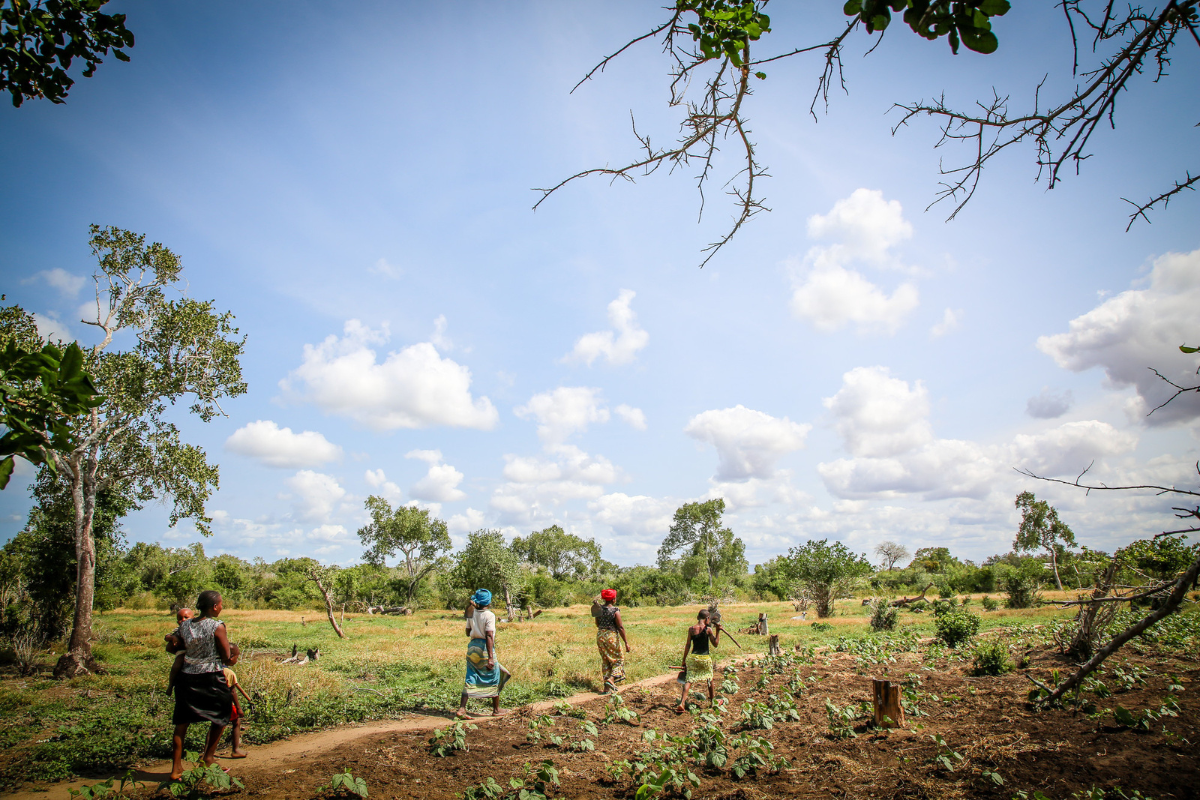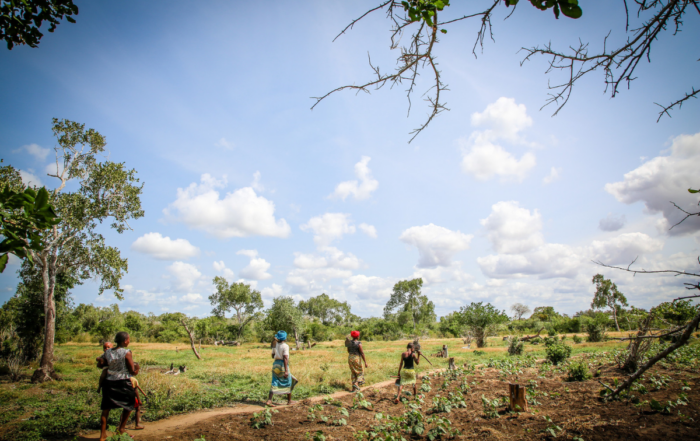Weather Mitigation: Farming in a New Era of Climate Change

The weather was unpredictable. Too much rain. Then too little. Lydia Waweru was frustrated by her harvests. Her area was receiving little rainfall, and the sandy soil couldn’t retain enough moisture. Her crop yields were failing over time, and this meant ever more diminished income from the farm.
The extremes of climate change induced weather patterns are causing an outsized impact on small scale agricultural production around the world. And in parts of Africa, the situation is becoming dire. According to Stephan Lutz, a Program Consultant with World Renew, small scale farmers in Kenya are losing hope. “You can imagine the stress when you plant your seeds and you want to grow something, and then the rains don’t come. For the first season, you might have some stored food or some cash, maybe some animals to help get you by. But when the rain doesn’t come the next season and the next? Every time the rain doesn’t come, it adds stress to people’s lives and makes it harder for them to recover.”
The worst impacts of climate change are often felt by the most vulnerable. For these communities, there is no margin for loss and no means to invest in mitigation. As one agronomist noted, “In one of the communities we visited, only five percent of households have enough food year-round. That means 95 percent of households go hungry for at least one part of the year. And often that hungry period often coincides with the main growing season. How do you work efficiently on an empty stomach?”
Farmers have to adapt in order to survive. And that’s where World Renew’s Conservation Agriculture training comes in. Recognizing the new realities of unstable weather patterns, conservation agriculture takes a new approach, training farmers to minimize tillage, maximize soil cover, and put certain crops together to fight pests. This training program is being implemented in dozens of countries around the world, and staff has seen again and again how the adoption of CA principles increases crop yields for small scale farmers, even during times of infrequent rain.
Jenninah Kabiswa is World Renew’s country director in Kenya and is also involved in agriculture training. She believes that this type of education is key for a country like Kenya, where almost 32% of the country is involved in agriculture. On a Facebook Live interview, she noted, “It’s very important that we work to ensure that farmers get as much yield as possible from their land. [This training] is really useful for communities that are dry or semi-dry, and where the rain patterns are unpredictable.”
Kabiswa has seen amazing results when farmers fully apply conservation agriculture principles. They produce better quality of crops, and thus farmers can get a better price for them at the market. “We have seen a farm’s yield go from just 2-3 bags of maize to 10 bags of maize!” And this increase in production and thus profit also allows a farmer to expand their operations. “The farmers are excited and are able to begin expanding their farms from around ¼ acre to 1 acre.”
Implementing conservation agriculture requires a behavior change from farmers who are used to using traditional methods. Lutz explains, “We work with “champion farmers” in Kenya, [people] who have adopted conservation agriculture, and then they will reach out to 2-3 other farmers.” World Renew staff encourages farmers to experiment with various farming methods in order to make their own decisions.
Lydia went through a conservation agriculture training, and began to change her methods. The first year wasn’t successful. But then she consulted with program staff to make necessary changes. Lutz shares that Lydia diversified her crops and ensured that there was enough mulch/soil cover using organic matter. The change in crop yields was dramatic, even when the seasons did not have adequate rainfall.
For Lydia, conservation agriculture combined with the ongoing mentoring of program staff has been life-changing. “My land is now productive. I am a happy mother who is able to provide for my family with a variety of food, which is healthy and nutritious. I meet my household needs and I am able to serve God and our church with what I have produced from my farm. I have made significant income and with it I have managed to construct a permanent house.’’
Yet as Kabiswa is quick to point out, the results from conservation agriculture training don’t come overnight. “You must take the long view of this type of work,” she shares. “It doesn’t provide a quick or easy solution. When we come into a community, we of course come with expertise and knowledge. But we also recognize that these communities have things to teach us. And so we come with a desire to learn from them as well. That is our ethos at World Renew…It is a culture of love!”
Learn more about how climate change is affecting farmers in Kenya with our Climate Conversations video series. Also, you can support World Renew’s conservation agriculture work around the world, investing in vulnerable communities most impacted by our changing climate.
MORE STORIES AND NEWS
It Takes a Community: How Hunting Park is Fighting for Climate Justice
It Takes a Community: How Hunting Park is Fighting for Climate Justice “Some neighbourhoods, at
Weather Mitigation: Farming in a New Era of Climate Change
Weather Mitigation: Farming in a New Era of Climate Change The weather was unpredictable. Too much
Loving our Neighbour: A Net Zero Lent Challenge
Loving our Neighbour: A Net Zero Lent Challenge Most of us in the West are largely






